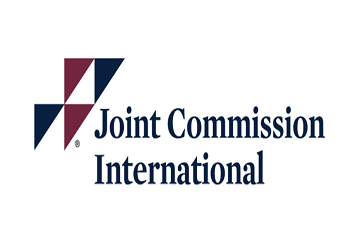Hospital Ward Design and Layout Plans: Creating Spaces That Heal
August 29, 2025What Makes Good Hospital Design? Can Modern Hospital Interior Design Improve Patient Satisfaction?
September 6, 2025When patients step into a hospital, their first concern is trust—trust in the facility, its doctors, and the care they’ll receive. In today’s healthcare landscape, hospital accreditation plays a vital role in building that trust. One of the most prestigious accreditations in the world is JCI (Joint Commission International). But what truly separates a JCI-accredited hospital from a non-accredited one? And why does it matter? Let’s dive deep into the differences that define patient care, safety, and long-term success.
What is JCI Accreditation?
The Joint Commission International (JCI) is a globally recognized body that sets healthcare quality and patient safety benchmarks. JCI accreditation is awarded to hospitals that meet rigorous international standards covering clinical care, facility management, patient safety, and organizational leadership.
For a hospital, achieving JCI accreditation isn’t easy—it involves a comprehensive review, strict compliance checks, and continuous quality improvement. Non-accredited hospitals, on the other hand, may operate without adhering to these benchmarks, leaving significant gaps in patient safety and care quality.
 alt="" class="wp-image-5374"/>
alt="" class="wp-image-5374"/>Patient Safety Standards: Accredited vs. Non-Accredited
- JCI-Accredited Hospitals:
Safety is the foundation of JCI. Accredited hospitals follow strict protocols to prevent medical errors, ensure infection control, and maintain emergency preparedness. This means standardized medication practices, clearly marked emergency exits, and frequent audits to identify risks before they affect patients. - Non-Accredited Hospitals:
While many provide competent care, they may lack structured protocols. This inconsistency can lead to higher chances of misdiagnosis, medication errors, or delayed emergency response. Patients often rely solely on a doctor’s reputation rather than institutional safeguards.
Quality of Care
- JCI-Accredited Hospitals:
Every department—from OPD to ICU—operates under evidence-based guidelines. Care pathways are designed to ensure consistent treatment outcomes. Accreditation also requires regular staff training to keep up with evolving medical practices. - Non-Accredited Hospitals:
Care quality may vary from one doctor or department to another. Without a standardized framework, patients may face inconsistencies in treatment, delays in procedures, or limited follow-up care systems.
Infrastructure and Facility Management
- JCI-Accredited Hospitals:
Infrastructure design is an important part of accreditation. Facilities must be safe, hygienic, and patient-friendly. For example, proper ventilation systems, fire safety features, secure patient pathways, and accessibility for differently-abled patients are mandatory. - Non-Accredited Hospitals:
Many lack systematic facility planning. Emergency exits may be poorly marked, infection control zones may not exist, and design inefficiencies can slow down patient flow. While not all non-accredited hospitals compromise on infrastructure, most do not meet international safety benchmarks.
 alt="" class="wp-image-5375"/>
alt="" class="wp-image-5375"/>Patient-Centered Care
- JCI-Accredited Hospitals:
Patients are treated as partners in care. This includes transparent communication, informed consent, respecting cultural values, and protecting patient rights. Satisfaction surveys and feedback mechanisms are mandatory to ensure hospitals continuously improve. - Non-Accredited Hospitals:
While compassionate doctors exist everywhere, structured patient engagement systems are often missing. Feedback may not be systematically collected, leading to repeated service gaps.
Technology and Innovation
- JCI-Accredited Hospitals:
Accreditation encourages hospitals to adopt advanced technology such as electronic medical records, telemedicine integration, and automated patient monitoring systems. These tools improve efficiency and minimize human error. - Non-Accredited Hospitals:
Technology adoption varies widely. Some may use advanced tools, while others still rely on outdated manual processes, increasing risks of delays and record-keeping errors.
Global Recognition
- JCI-Accredited Hospitals:
These hospitals are part of a global network recognized by patients, insurers, and medical tourism agencies. Patients from across the world often choose JCI-accredited hospitals for complex treatments because accreditation assures consistent international standards. - Non-Accredited Hospitals:
These facilities typically cater to local populations. International patients and insurers may hesitate to engage with them due to concerns about quality, safety, and accountability.
Financial and Operational Efficiency
- JCI-Accredited Hospitals:
While the accreditation process is resource-intensive, it ultimately results in better cost control through efficient systems, reduced medical errors, and optimized patient flows. Over time, these efficiencies translate into higher trust, more patients, and stronger financial health. - Non-Accredited Hospitals:
They may avoid the upfront costs of accreditation but often face hidden costs—inefficiencies, patient dissatisfaction, repeat treatments, and lack of trust among insurers.
Trust and Reputation
- JCI-Accredited Hospitals:
Accreditation builds credibility. Patients trust them more, insurers recognize them, and doctors prefer to be associated with globally recognized institutions. It becomes a brand advantage that sets them apart in competitive healthcare markets. - Non-Accredited Hospitals:
Their reputation often depends on individual doctors rather than institutional quality. While some may enjoy local trust, they lack the global recognition that accreditation brings.
The Real Difference: Peace of Mind
At the end of the day, the difference between JCI-accredited hospitals and non-accredited ones comes down to peace of mind. For patients, accreditation means knowing that their safety, care, and comfort are prioritized at every step. For hospital owners, it means international recognition, operational efficiency, and long-term success.
How Hospertz India Pvt Ltd Can Help
Achieving JCI accreditation requires more than just good doctors—it demands world-class hospital design, planning, and execution. This is where Hospertz India Pvt Ltd steps in.
As a leading hospital consultant in India, we help healthcare organizations with:
- Architectural planning and design aligned with global accreditation standards.
- Turnkey hospital projects that focus on safety, efficiency, and patient comfort.
- Guidance on compliance with NABH and JCI requirements.
- Cost-effective solutions without compromising on quality.
Whether you’re starting a new hospital or upgrading an existing facility, Hospertz ensures your space is built to meet both patient needs and international benchmarks.
Partner with Hospertz India Pvt Ltd today and let us help you create a hospital that inspires trust, safety, and excellence.
